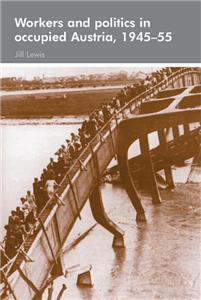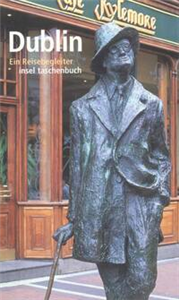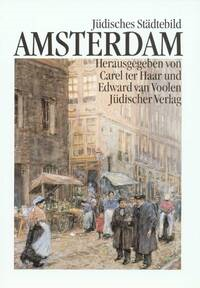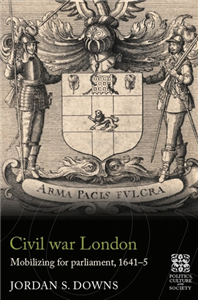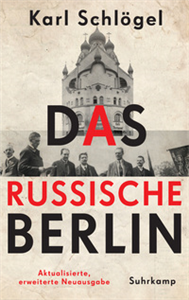Your Search Results
-
Promoted ContentOctober 2015
Gelassen bleiben, Baby
Coole Tipps für ruhige Eltern
by Vienna, David / Englisch Wais, Johanna
-
Promoted ContentHumanities & Social SciencesMarch 2017
Imperial cities
Landscape, display and identity
by Felix Driver, David Gilbert
Imperial cities explores the influence of imperialism in the landscapes of modern European cities including London, Paris, Rome, Vienna, Marseilles, Glasgow and Seville. Examines large-scale architectural schemes and monuments, including the Queen Victoria Memorial in London and the Vittoriano in Rome. Focuses on imperial display throughout the city, from spectacular exhibitions and ceremonies, to more private displays of empire in suburban gardens. Cconsiders the changing cultural and political identities in the imperial city, looking particularly at nationalism, masculinity and anti-imperialism.
-
 Trusted Partner
Trusted Partner
-
 Trusted Partner
Humanities & Social SciencesFebruary 2023
Trusted Partner
Humanities & Social SciencesFebruary 2023Globalized urban precarity in Berlin and Abidjan
Young men and the digital economy
by Hannah Schilling
Digital technologies promise efficiency and comfort, but the smoothness of platform services relies on the hidden social labour of those who keep the gig economy running. This book presents a comparative ethnography of young men making a living through digital technologies: selling mobile airtime in Abidjan, Côte d'Ivoire, and app-based delivery riders in Berlin, Germany. These case studies explore the significance of symbolic capital in urban youth's social existence and organisation of livelihood in the digital economy, and the technological mechanisms producing a new form of urban precarity. Globalized urban precarity in Berlin and Abidjan puts forward an original comparative approach to develop a global urban sociology for the digital era. It provides an innovative analytical toolbox that decentres discussions of precarity from the standard of a normal employment contract. With its focus on symbolic capital, the ethnography shows the consequences of the proliferating gig economy for status struggles among urban youth, and carefully embeds the densification of software and services into the socio-material relations on which these new urban infrastructures are built.
-
 Trusted Partner
May 2007
Trusted Partner
May 2007Paris, Joyce, Paris
by Djuna Barnes, Karin Kersten, Kyra Stromberg
»Ein Liebhaberbändchen zum Mit-sich-Herumschleppen (nicht nur in Paris), zum Fotos-Anschauen (Paris, wie es einmal war, von unnachahmlichem Zauber), zum Sich-Freuen, daß es solche Bücher noch gibt.« BuchJournal
-
 Trusted Partner
Humanities & Social SciencesJanuary 2015
Trusted Partner
Humanities & Social SciencesJanuary 2015Workers and politics in occupied Austria, 1945–55
by Jill Lewis
In March 1946 Winston Churchill warned the world about the 'Iron Curtain' that had descended across Europe and behind which now lay, he said, the eight capitals of the ancient states of central and Eastern Europe. In fact, one of these eight, Vienna, escaped absorption into the Soviet bloc. Between 1945 and 1955, Austria and its capital were occupied by the Four (increasingly mutually antagonistic) Allied Powers. During this decade of confusion, insecurity, suspicion and fear, and confronted by poverty and the threat of famine, Austria's political and economic elites joined forces to promote a culture of political unity and harmony from which eventually emerged the Austrian model of corporatism, commonly referred to as the Social Partnership. This book sets the social and economic difficulties that Austria encountered in this crucial decade in their international context and examines how they were contained. The author also discusses the long-term implications of the Austrian culture of consensus, not only for the way in which the country dealt with its recent past, but also for present-day political developments. A remarkable study that will be essential reading for students and scholars of twentieth-century European history. ;
-
 Trusted Partner
May 2005
Trusted Partner
May 2005Dublin
Ein Reisebegleiter
by Hans-Christian Oeser
Dublin, mit London, Paris und Rom das beliebteste städtische Reiseziel Europas, ist zugleich auch das literarischste. Spätestens seit James Joyce' Ulysses (1924) findet sich die irische Hauptstadt auf der literarischen Weltkarte eingezeichnet. Auf acht Spaziergängen führt Hans-Christian Oeser zu ihren literarisch bedeutsamen Stätten.Geburts-, Wohn- und Sterbehäuser, Grab- und Denkmäler, Pubs und Theater sowie einige wenige Museen – sie alle eröffnen Zugang zu den Persönlichkeiten der irischen Literatur: den Autoren und ihren Figuren. Ein Serviceteil mit den wichtigsten Adressen und Telefonnummern ergänzt den Band.
-
 Trusted Partner
September 2010
Trusted Partner
September 2010Amsterdam und zurück
Roman
by Marente Moor, Waltraud Hüsmert
Es ist ein ganzer Haufen Russen, den es zu Beginn der Neunziger in Amsterdam an Land gespült hat. Die Sowjetunion gibt es nicht mehr, die Grenzen sind durchlässiger geworden, aber Heimweh ist trotzdem ein Thema für diese Jungs, denen Puschkin-Büsten und Salzgurken inneren Halt geben, die ihre Tage auf dem pittoresken Rembrandtplein verbringen, wo sie Aquarelle an die Touristen verscherbeln, und ihre Nächte dem Studium des Wodkas widmen. Witali Kirillow ist einer von ihnen, der Mann mit den meergrünen Augen. Längst ist sein Visum abgelaufen, seit dem Tag, an dem er »illegal« wurde, fährt er vorsichtshalber in der Straßenbahn nicht mehr schwarz. Doch das ist nicht das einzige Delikt in Witalis Leben. Acht Jahre zuvor, als Offizier an der sowjetisch-finnischen Grenze, hinderte er einen Kameraden nicht daran, sich in den Westen abzusetzen. Von der Familie gutmütig als »das größte Loch im eisernen Vorhang« verspottet, wurde er von der Armee hart bestraft. Seitdem läßt der Gedanke an den Flüchtling Witali nicht mehr los. Und schließlich, unterstützt von der rasant-energischen Jessie, macht er sich auf, um herauszufinden, was aus ihm geworden ist. Nur zwei, drei Pinselstriche braucht Marente de Moor, um in ihrem Debütroman die unterschiedlichsten Viertel Amsterdams lebendig werden zu lassen und vor allem die russische Szene der Stadt zu porträtieren: lauter Charakterköpfe, die – hochsympathisch und besorgniserregend tiefgründig – ganz nebenbei verhandeln, was Grenze, was Identität, was Heimat bedeutet. »Ein mitreißendes Bild – manchmal herrlich komisch, manchmal voller Nostalgie – von einem ungebärdigen Pulk Russen, die wie Schiffbrüchige in Amsterdam gestrandet sind.« Haarlems Dagblad
-
 Trusted Partner
September 2012
Trusted Partner
September 2012Paris. Eine Liebe
Erzählung
by Urs Faes, Nanne Meyer
Milde Septembertage in Paris: Nach fast dreißig Jahren kehrt Eric zurück in die Stadt, von der er einmal gehofft hatte, sie würde ihm die Erfüllung bringen. Statt dessen brachten ihn die Tage mit Claudine an den Rand der Verzweiflung – Claudine mit ihren hellen, fast weißblonden Haaren, die Hände in den Taschen ihres grünen Mantels vergraben. Jetzt scheint eine Wiederbegegnung möglich. Und es stellt sich die Frage, ob »einer nicht genauso aus dem besteht, was er nicht gelebt hat, wie aus dem, was durch Zufall seine Wirklichkeit geworden ist«. -- Mit Zeichnungen von Nanne Meyer.
-
 Trusted Partner
October 2008
Trusted Partner
October 2008Die Geheimnisse von Paris
Vollständige Ausgabe. Zwei Bände in Kassette
by Eugène Sue, Helmut Kossodo, Helmut Kossodo
Paris 1838: Ein geheimnisvoller deutscher Herzog kämpft in den verrufensten Gegenden der Stadt für Gerechtigkeit, denn im Labyrinth der nächtlichen Gassen treiben so allerhand finstre Gestalten ihr Unwesen. Eugène Sue (1804-1857) gehört zu den meistgelesenen Autoren des 19. Jahrhunderts. Die Geheimnisse von Paris wurden bei Erscheinen 1843 schlagartig zum Bestseller. Einer der spannendsten und furiosesten Romane der europäischen Literatur!
-
 Trusted Partner
October 1993
Trusted Partner
October 1993Jüdisches Städtebild Amsterdam
by Edward Voolen, Carel Haar, Helga Beuningen
Dieser Band stellt das jüdische Amsterdam vor. In literarischen Texten, Bildern und Dokumenten wird die Blütezeit des 17. Jahrhunderts laut. Geschildert wird die Zeit der französischen Besatzung von 1795, die jüdische Lebenswelt des 19. Jahrhunderts, die Zeit der deutschen Besetzung der Niederlande 1940, die Deportation und Ermordung der meisten niederländischen Juden. Das gegenwärtige jüdische Leben kommt in literarischen Zeugnissen zu Wort. Die Anthologie literarischer Texte zeigt die deutschsprachige Literatur im holländischen Exil und gibt zugleich eine Übersicht der modernen niederländischen Literatur.
-
 Trusted Partner
March 2006
Trusted Partner
March 2006London
Bilder einer großen Stadt
by Virginia Woolf, Kyra Stromberg, Kyra Stromberg
Als zusammenhängende Folge für eine große Londoner Frauenzeitschrift 1931 entstanden, beschreiben diese Prosabilder aus London genau jene Orte, die ein großes Publikum in einer klassischen Schilderung der englischen Hauptstadt erwarten durfte. Es ist das Portrait einer Metropole, die ihrer großen Vergangenheit nachsinnt und die Gegenwart noch nicht recht fassen kann, die längst von ihr Besitz ergriffen hat.
-
 Trusted Partner
May 1995
Trusted Partner
May 1995Ein Sommer in London
by Theodor Fontane, Harald Raykowski
Theodor Fontane wurde am 30.Dezember 1819 in Neuruppin geboren. Nach der Apothekerlehre publizierte er ab 1839 erste Novellen und Gedichte. Nach einem längeren Auslandsaufenthalt in London lebte Fontane ab 1849 als freier Schriftsteller in Berlin und arbeitete u.a. als Theaterrezensent für die Vossische Zeitung. Er starb am 20. September 1898 in Berlin.
-
 Trusted Partner
Humanities & Social SciencesJanuary 2021
Trusted Partner
Humanities & Social SciencesJanuary 2021Vienna’s ‘respectable’ antisemites
by Michael Carter-Sinclair
-
 Trusted Partner
Humanities & Social SciencesSeptember 2023
Trusted Partner
Humanities & Social SciencesSeptember 2023Civil war London
Mobilizing for parliament, 1641–5
by Jordan S. Downs
This book looks at London's provision of financial and military support for parliament's war against King Charles I. It explores for the first time a series of episodic, circumstantial and unique mobilisations that spanned from late 1641 to early 1645 and which ultimately led to the establishment of the New Model Army. Based on research from two-dozen archives, Civil war London charts the successes and failures of efforts to move London's vast resources and in the process poses a number of challenges to longstanding notions about the capital's 'parliamentarian' makeup. It reveals interactions between London's Corporation, parochial communities and livery companies, between preachers and parishioners and between agitators, propagandists and common people. Within these tangled webs of political engagement reside the untold stories of the movement of money and men, but also of parliament's eventual success in the English Civil War.
-
 Trusted Partner
August 2021
Trusted Partner
August 2021Berlin
Psychogramme of a City
by Karl Scheffler, Florian Illies, Michael Hofmann, Florian Illies
“Berlin is damned forever to become, and never to be.” Scheffler could not have anticipated that his dictum would prove prophetic. No other author has captured the city’s fascinating and unique character as perfectly. From the golden twenties to the anarchic nineties and its status of world capital of hipsterdom at the beginning of the new millennium – the formerly divided city has become the symbol of a new urbanity, blessed with the privilege of never having to be, but forever to become. Unlike London or Paris, the metropolis on the Spree lacked an organic principle of development. Berlin was nothing more than a colonial city, its sole purpose to conquer the East, its inhabitants a hodgepodge of materialistic individualists. No art or culture with which it might compete with the great cities of the world. Nothing but provincialism and culinary aberrations far and wide. Berlin: “City of preserves, tinned vegetables and all-purpose dipping sauce.”
-
 Trusted Partner
October 2009
Trusted Partner
October 2009Berlin 1989 / 2009
by Cees Nooteboom, Simone Sassen, Helga Beuningen, Rosemarie Still
Als Außenstehender und anteilnehmender Augenzeuge zugleich erlebt Cees Nooteboom das Jahr 1989 in Berlin. Ende der Neunziger besucht der Autor erneut die nun nicht mehr geteilte Stadt. Und zehn Jahre später inspiziert er die Berliner Verhältnisse ein weiteres Mal. Der Mauerfall, die neunziger Jahre, das heutige Berlin: Der große niederländische Erzähler und Essayist Cees Nooteboom stellt seinen zum Klassiker gewordenen Berliner Notizen und der Rückkehr nach Berlin neue, bisher unveröffentlichte Texte zur Seite. Zwanzig Jahre bewegter Geschichte spiegeln sich in dieser Zusammenstellung von Essays, die von den Deutschen und ihrer Hauptstadt erzählen, klug, unprätentiös und sinnlich.
-
 Trusted Partner
April 1991
Trusted Partner
April 1991Briefe aus Berlin
Herausgegeben von Joseph A. Kruse
by Heinrich Heine, Joseph Anton Kruse, Joseph Anton Kruse
Heinrich Heine, 1797 als Sohn jüdischer Eltern in Düsseldorf geboren, arbeitete nach seinem Jurastudium als Journalist und Schriftsteller. 1831 ging er nach Paris ins Exil, einige Jahre später wurden seine Werke in Deutschland verboten. Er starb 1856 in Paris. Joseph A. Kruse, 1944 in Dingden bei Bocholt (heute Hamminkeln) geboren, ist seit 1975 Direktor des Heinrich-Heine-Instituts in Düsseldorf; 1986 wurde er zum Honorarprofessor an der Heinrich-Heine-Universität Düsseldorf ernannt. Er gibt u. a. das Heine-Jahrbuch und die Heine-Studien heraus und hat zahlreiche Publikationen zu Heine und seiner Zeit sowie zu den Sammlungen des Heine-Instituts veröffentlicht. Joseph A. Kruse, 1944 in Dingden bei Bocholt (heute Hamminkeln) geboren, ist seit 1975 Direktor des Heinrich-Heine-Instituts in Düsseldorf; 1986 wurde er zum Honorarprofessor an der Heinrich-Heine-Universität Düsseldorf ernannt. Er gibt u. a. das Heine-Jahrbuch und die Heine-Studien heraus und hat zahlreiche Publikationen zu Heine und seiner Zeit sowie zu den Sammlungen des Heine-Instituts veröffentlicht.
-
 Trusted Partner
April 2019
Trusted Partner
April 2019Das russische Berlin
by Karl Schlögel
Fast eine halbe Million russischer Flüchtlinge nahm Berlin Anfang der 1920er Jahre auf. Die Stadt war in der Zwischenkriegszeit nicht nur die »Stiefmutter der russischen Städte«, sondern auch heimliches Zentrum der Weltrevolution. Hier trafen die totalitären Bewegungen aufeinander, die das Schicksal Europas im »Zeitalter der Extreme« besiegelten. Karl Schlögel spürt die große Geschichte in der kleinen auf, er folgt den dramatis personae und rekonstruiert die Netzwerke, in denen sie sich bewegen. Die Welt der Bahnhöfe und die der Salons im Tiergartenviertel, die Dichter des Silbernen Zeitalters und die Agitkünstler der Sowjetmacht, der Empfang in der sowjetischen Botschaft und Nabokovs Beobachtungen zum Aufstieg der Nazis, die Stadtwahrnehmung der Taxifahrer und der Skandal um die »Zarentochter Anastasia«. In seiner Darstellung spielen Kursbücher und Adressverzeichnisse eine Rolle, Cafés und Cabarets, das Zeremoniell der Diplomatie und die Praktiken des Untergrundkampfes, die polyglotte Welt der Komintern-Funktionäre und die Karten der Geopolitiker. Das Russische Berlin ist kein romantischer Ort, sondern Schauplatz einer Epoche, die Nachkrieg und Vorkrieg in einem war. Seit der Entfremdung zwischen Russland und der Europäischen Union ist auch das hochvernetzte »Russkij Berlin« der Gegenwart politisch gespalten. Der doppelte Blick auf das einstige und heutige russische Berlin erweist sich als unerwartet aktuell und produktiv.
-
 Trusted Partner
October 2025
Trusted Partner
October 2025The Seoul Season
by Patricia Bouslair, Moon Notes
Mit edlem Farbschnitt in der Erstauflage – Lieferung nach Verfügbarkeit! Seoul, my soul Für Location-Scout Maya läuft das Leben wie ein perfektes Drehbuch: Im aufregenden Seoul fängt sie mit ihrer Kamera Schauplätze für eine vielversprechende Serie des Streaming-Giganten Cinemate ein. Dabei entdeckt sie die Galerie des aufstrebenden Künstlers Jae-ho, mit dem sie anfänglich noch Seoul erkundet und später auch die Seele des jeweils anderen. Doch als eine impulsive Lüge alles ins Wanken bringt, muss sich Maya zwischen Karriere und der Liebe entscheiden. Denn die Leinwand, auf die sie all ihre Träume projiziert hat, droht für immer zu zerreißen. The Seoul Season: Eine Slow-Burn-Romance in einer der aufregendsten Städte der Welt Liebe unter Kirschblüten: Atmosphärische Romance über die Liebe zwischen einem weiblichen Location-Scout und einem Künstler im aufregenden Seoul. Sich selbst finden: Auf der Suche nach Inspiration trifft der aufstrebende Künstler Jae-ho auf die selbstbewusste Maya, die ihre Vergangenheit überwinden möchte. Umgebaute Industriehallen und verträumte Hinterhöfe: Während Maya und Jae-ho gemeinsam die schönsten Ecken Seouls erkunden, verlieben sie sich ineinander. Voller Gefühle: Ein berührendes New Adult-Buch mit den beliebten Tropes „Strangers to Lovers“, „Grumpy x Sunshine“ und „Emotional Scars“. Toll ausgestattet: Softcover mit trendig gestalteten Klappen und einem wunderschönen Lesezeichen zum Abtrennen. Über Selbstfindung und Liebe: Das sinnlich geschriebene Romance-Buch lädt New-Adult-Leser*innen zum Träumen und Nachdenken ein.











